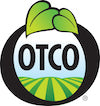Lowe's to Help Honeybees By Phasing Out Toxic Pesticide

Lowe’s is giving some much-needed love and respect to the nation’s honeybees. The home improvement retail giant says it’s going to phase out products that contain the controversial class of pesticides known as neonicotinoids, or neonics, known for being a threat to honeybees and other important pollinators.
Neonics have been linked to colony collapse disorder, a mysterious deadly condition that causes honeybees to abandon their hives. Billions of bees have died from the condition in recent years and scientists are scrambling to find ways to save these important pollinators. Several theories exist about the cause of colony collapse disorder, and one of the most convincing is the damage caused by pesticides, particularly neonics.
Lowe’s made the announcement after the EPA said it will refuse to issue new permits for use of neonicotinoid pesticides. The EU has already banned several types of neonic pesticides and recently released a report calling them more harmful to the environment than previously thought.
According to NBC News, Lowe's also said that it would work with growers to "eliminate the use of neonic pesticides on bee-attractive plants we sell." Home Depot made a similar announcement last summer that it would label plants that had been treated with neonicotinoids. It has not announced a similar plan to discontinue the sale of neonic products.
“We commend Lowe’s for taking a leadership position on this critical issue,” Adam Kanzer, Managing Director and Director of Corporate Engagement at Domini Social Investments, said in a statement. “Sales of neonic-containing products may be exacerbating a critical systemic risk – alarming declines in honeybees and wild pollinators that support our food systems. As investors and as human beings, we all depend upon pollinators. We believe Lowe’s actions will help protect an irreplaceable resource.”
Honeybees pollinate important food crops—about one in three bites of food come via honeybees. Without their important role in our food system, food prices could skyrocket and some foods could even become obsolete.
Image: cygnus921
Leave a comment
Comments will be approved before showing up.


